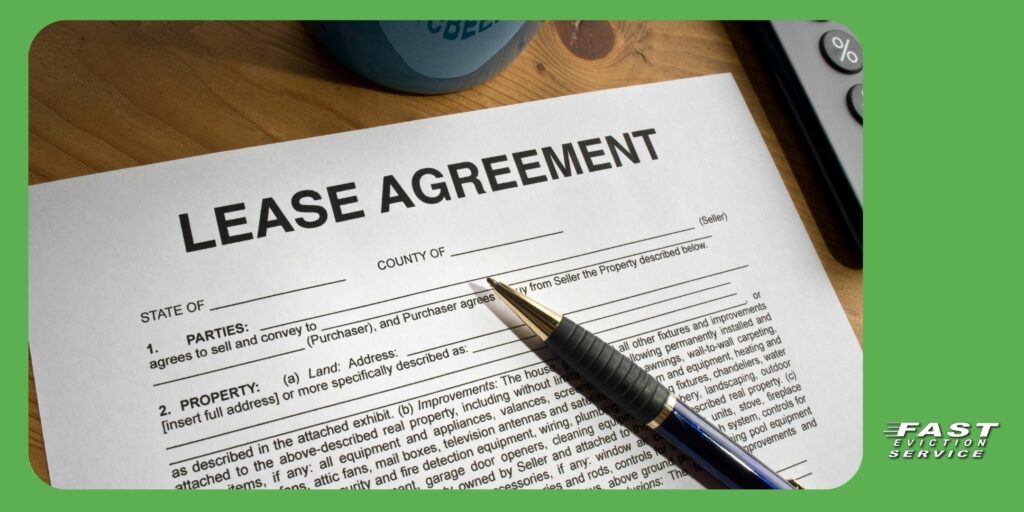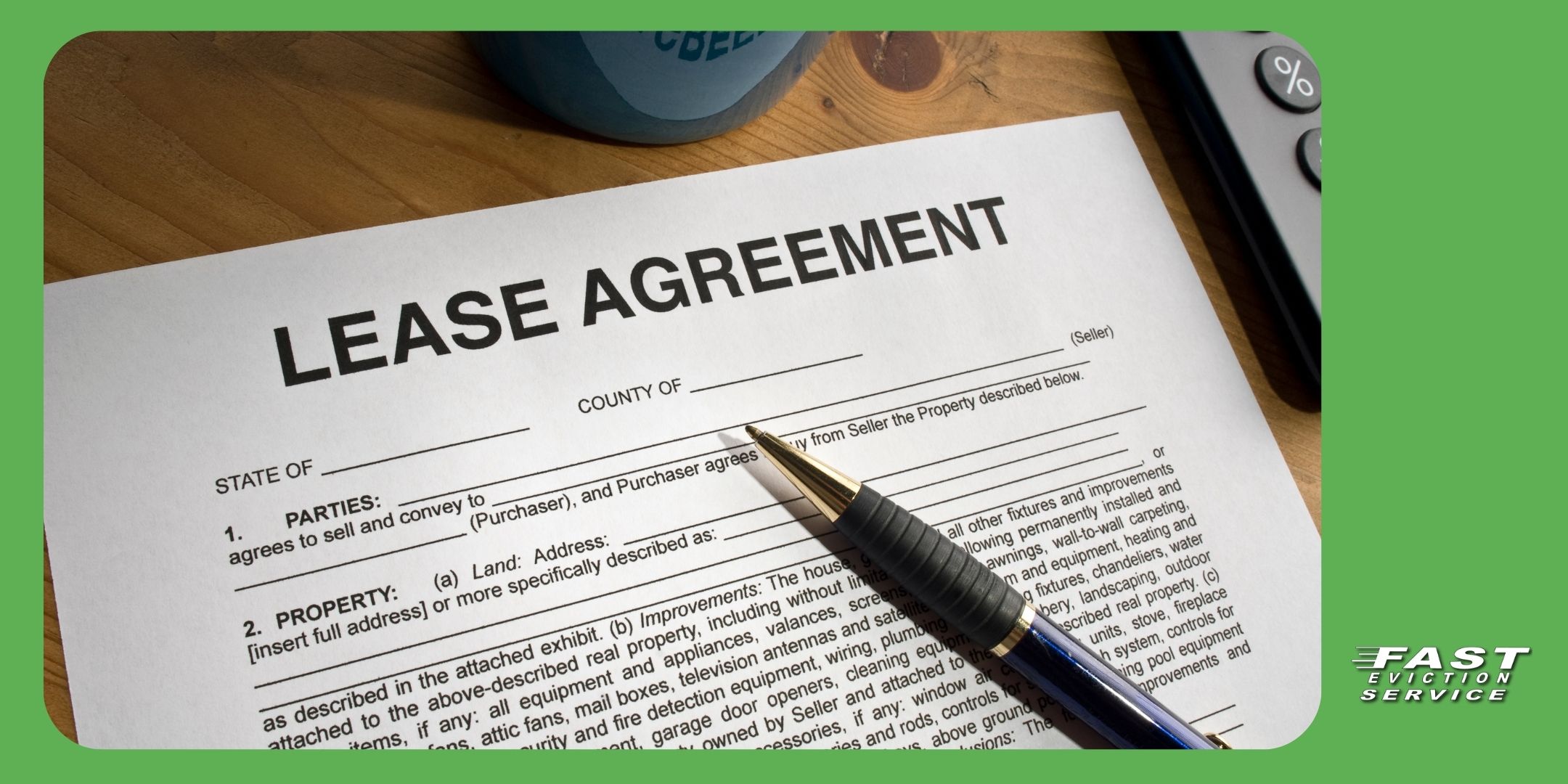Updated 02/11/25
When renting out a property, landlords and tenants alike must decide which type of agreement best suits their needs: a lease vs rental agreement. While both serve the same fundamental purpose—allowing tenants to occupy a property—they have key differences that can impact financial stability, flexibility, and legal considerations. Understanding these differences is essential for making an informed decision that aligns with your rental strategy and long-term goals.

In this guide, we will break down the lease vs rental agreement debate, highlight the advantages and disadvantages of each, and provide insight into which might be the best option for your rental business.
Table of Contents
- What is a Lease Agreement?
- What is a Rental Agreement?
- Key Differences Between Lease and Rental Agreement
- Pros and Cons of a Lease Agreement
- Pros and Cons of a Rental Agreement
- When to Choose a Lease vs Rental Agreement
- Month-to-Month Agreements: A Flexible Alternative
- Common Mistakes Landlords Make with Lease and Rental Agreements
- Frequently Asked Questions
What is a Lease Agreement?
A lease agreement is a legally binding contract between a landlord and tenant that outlines the terms and conditions of renting a property for a fixed period, usually six months to one year or longer. Once signed, both parties must adhere to the terms unless both agree to modify or terminate the lease early.
Leases provide security for landlords and tenants, ensuring stable rent and occupancy for a set period. However, they also limit flexibility, as breaking a lease can involve legal and financial consequences.
What is a Rental Agreement?
A rental agreement, also called a month-to-month agreement, is a short-term rental contract that automatically renews at the end of each rental period (usually 30 days), unless either party provides proper notice to terminate.
Rental agreements offer greater flexibility, allowing landlords to make changes to rental terms with proper notice, such as adjusting rent or updating policies. However, they also come with uncertainty since tenants can vacate with little notice, and landlords may experience more frequent turnover.
Key Differences Between Lease and Rental Agreement
Understanding the rental agreement vs lease distinction is crucial for landlords. The major differences include:
- Duration: Leases typically last 6 months to a year or longer, while rental agreements operate on a month-to-month basis.
- Stability: Leases guarantee consistent rental income, while rental agreements allow for frequent turnover.
- Flexibility: Rental agreements allow landlords to adjust rent or policies more frequently.
- Legal Requirements: Breaking a lease often requires legal proceedings, whereas ending a rental agreement usually just requires proper notice.
Pros and Cons of a Lease Agreement
Pros:
- Stable, predictable income for a longer period.
- Less turnover, reducing the need for frequent tenant screening.
- Legal protection ensures tenants cannot vacate without consequence.
- Less administrative work compared to managing short-term tenants.
Cons:
- Less flexibility for rent adjustments during the lease term.
- Difficult to remove a tenant early without legal cause.
- Longer vacancy periods if a tenant does not renew.
Pros and Cons of a Rental Agreement
Pros:
- Flexible for both landlords and tenants.
- Ability to adjust rent or policies with proper notice.
- Easier tenant removal, requiring only a notice period.
- Better for short-term tenants who may not need a long-term commitment.
Cons:
- Higher turnover rates, leading to increased vacancies.
- Uncertain rental income due to frequent tenant changes.
- More administrative work from managing frequent lease renewals.
When to Choose a Lease vs Rental Agreement
Choose a Lease Agreement If:
- You want long-term stability and consistent rental income.
- You prefer less frequent tenant turnover.
- You are renting to tenants who plan to stay for an extended period.
Choose a Rental Agreement If:
- You need flexibility to adjust rent or policies more frequently.
- You expect short-term tenants, such as students or seasonal workers.
- You want the ability to remove tenants with minimal hassle.
Month-to-Month Agreements: A Flexible Alternative
A month-to-month agreement is a type of rental agreement that provides ongoing flexibility for both landlords and tenants. It renews automatically each month unless one party provides proper notice to terminate.
Landlords who are unsure about long-term leases often start with month-to-month agreements before offering a formal lease. This allows them to test the tenant-landlord relationship before committing to a longer-term contract.
Common Mistakes Landlords Make with Lease and Rental Agreements
Many landlords make critical mistakes when choosing between a lease vs rental agreement. Some common pitfalls include:
- Not Clearly Defining Lease Terms – Ensure every agreement includes rental price, due dates, deposit terms, maintenance responsibilities, and lease duration.
- Failing to Screen Tenants Properly – Whether short-term or long-term, thorough tenant screening is essential.
- Neglecting Local Laws – Different states and cities have specific rental laws that must be followed.
- Overlooking the Importance of Proper Notice Periods – Landlords must adhere to state-mandated notice periods when adjusting rent or terminating agreements.
Frequently Asked Questions
What is the main difference between a lease and a rental agreement?
A lease is for a fixed term (usually 6 months to a year), while a rental agreement typically renews month-to-month.
Which is better for landlords: a lease or a rental agreement?
It depends on your priorities—leases provide stability and guaranteed income, while rental agreements offer flexibility.
Can a landlord increase rent during a lease?
No, rent cannot be raised during a lease term unless specified. However, rent can be increased with proper notice in a rental agreement.
How much notice must be given to terminate a rental agreement?
Typically 30 days’ notice is required, but this varies by state.
Is a lease agreement legally binding?
Yes, once signed, a lease is a legally enforceable contract.
Final Thoughts
Understanding the lease vs rental agreement distinction helps landlords choose the best option for their rental business. Leases provide financial stability, while rental agreements offer flexibility. Deciding which one to use depends on your property goals, tenant demographics, and financial strategy. Whether you choose a rental agreement vs lease, ensuring clarity and legal compliance will set you up for success.




